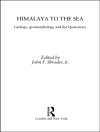In 1997, the U.S. Environmental Protection Agency (EPA) established regulatory standardsto address health risks posed by inhaling tiny particles from smoke, vehicleexhaust, and other sources. At the same time, Congress and the EPA began a multimilliondollar research effort to better understand the sources of these airborne particles, the levels of exposure to people, and the ways that these particles cause disease. To provide independent guidance to the EPA, Congress asked the National Research Council to study the relevant issues. The result was a series of four reportson the particulate-matter research program. The first two books offered a conceptualframework for a national research program, identified the 10 most critical researchneeds, and described the recommended timing and estimated costs of suchresearch. The third volume began the task of assessing initial progress made inimplementing the research program. This, the fourth and final volume, gaugedresearch progress made over a 5-year period on each of the 10 research topics. The National Research Council concludes that particulate matter research has led to abetter understanding of the health effects caused by tiny airborne particles. However, the EPA, in concert with other agencies, should continue research toreduce further uncertainties and inform long-term decisions.
Board on Environmental Studies and Toxicology & Committee on Research Priorities for Airborne Particulate Matter
Research Priorities for Airborne Particulate Matter [PDF ebook]
IV. Continuing Research Progress
Research Priorities for Airborne Particulate Matter [PDF ebook]
IV. Continuing Research Progress
Compre este e-book e ganhe mais 1 GRÁTIS!
Língua Inglês ● Formato PDF ● Páginas 372 ● ISBN 9780309531702 ● Editora National Academies Press ● Publicado 2004 ● Carregável 3 vezes ● Moeda EUR ● ID 7146580 ● Proteção contra cópia Adobe DRM
Requer um leitor de ebook capaz de DRM












